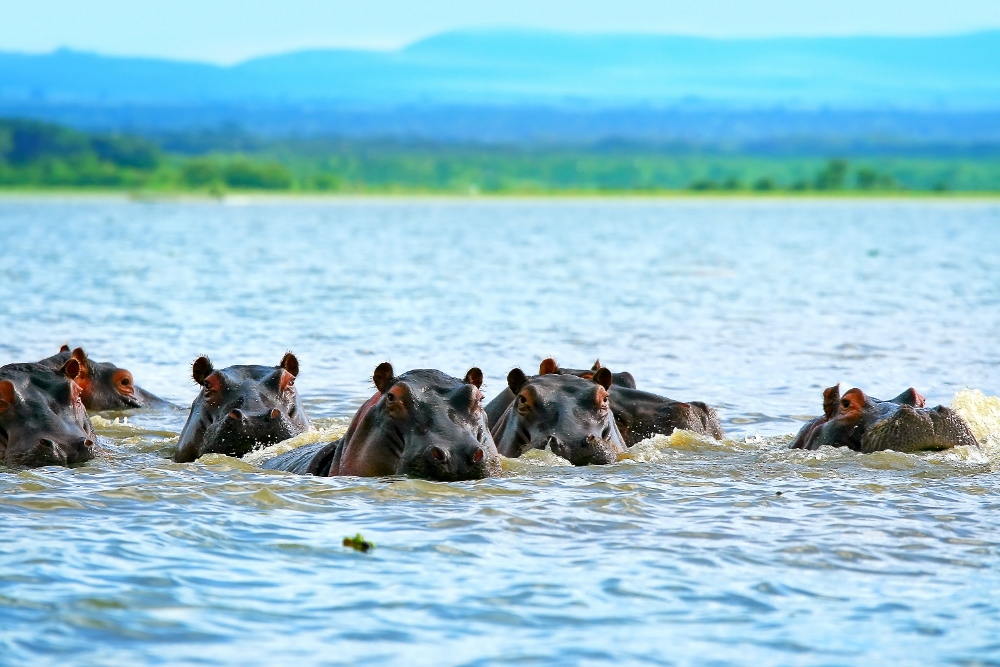Amy (ACA), an experienced Audit Manager, had been working for an accountancy firm throughout her career and had always wanted her next step to be a more meaningful path in the international development sector.
She was keen to take part in a voluntary assignment through AfID with the hope that this would increase her future prospects of landing a full-time role at a charity. However, Amy wanted to ensure that the volunteer role was a perfect fit for her; she wanted a role that didn’t just involve accountancy and finance, but also focussed on one of her passions – women’s rights.
Amy chose a Tanzanian organisation called Pastoral Women's Council, a community based organisation that promotes cultural, political, environmental and educational development of women and children to facilitate their access to essential social services and economic empowerment. It was a perfect fit for what she was looking.
The assignment Amy embarked upon started in October 2013 and lasted for two months. Once back in the UK it didn’t take Amy long until she had secured her first salaried role in the international development sector. In August 2014 she began her new position of Global Finance Manager at International Planned Parenthood Federation (IPPF).
AfID caught up with Amy to find out about her time so far at IPPF and to find out how she felt her voluntary experience helped her in the in hunt for a permanent role.
Can you tell us a little about your current role at IPPF and how it differs to your previous position with Moore Stephens?
My current role at IPPF is Global Finance Manager of a project entitled Sustainable Networks. I sit within the project team rather than within finance which allows for much more exposure to the operational side of the project. My main roles and responsibilities are:
• Management of the project financial management and reporting systems;
• Ensuring timely and accurate financial reporting and compliance with USAID rules and regulations around financial processes; and
• Provision of advice and support to colleagues in IPPF Central Office (CO) and IPPF Regional Offices (ROs) and Member Associations (MAs) on financial issues and requirements, including templates and guidelines.
A typical day may involve reviewing a funding application from a Member Association, consolidating financial information from the various offices into a single donor report, preparing ad hoc financial information to the donor and Project Director, as well as the more ordinary tasks like preparation of payment vouchers. I also get to travel occasionally, either to a Regional Office, with whom we work collaboratively, sharing ideas and tools for good financial management practice, or to a Member Association, where I have more of a support role.
My new role is very different to Moore Stephens, where we were usually going in after the project had finished and giving recommendations. I think this is a real failure of donors as the project teams are seldom still at the organisation and therefore the recommendations have a lot less weight. There should definitely be more mid-project audits.
Many accountants worry about the transferability of their skills when moving to a new country and sector; have you found any specific experience from your past roles have been particularly relevant?
One area where I think my experience was particularly relevant is the ability to read and understand donor contracts. Otherwise, my excel skills came in handy while volunteering in Tanzania; the finance team were adding things up on the calculator function on their mobile ‘phones as nobody had even shown them how to use excel for this.
How easy was it to adapt to living and working in a different culture?
Although I have been lucky enough to travel to over 50 countries with my job at Moore Stephens, this has mainly been in the comfort of hotels (safe but for the occasional cockroach and mosquito!), it was a bit of a shock adjusting to not having running water, electricity, and except for very occasionally, internet. Most communication with my colleagues back in Arusha was via text message, and I was using an old Nokia ‘phone which made it really difficult to track difference conversations going on with the same person. I quickly got into a routine of jogging as well as morning yoga, and I think everybody thought I was a bit odd as a lot of questions were asked. A highlight was the children on their way to school in the mornings waving and shouting ‘good morning’ which was lovely.
Why did you choose to work in the International Development sector?
Although I took a number of international development related modules during my undergraduate degree (2002-2005), it was only really when I started at Moore Stephens in 2008 that interest in International Development became more intense. The exposure to so many international donors and recipient organisations I just found fascinating. One of my first audits was in very rural Germany; a tiny NGO working to integrate immigrants into the local community, funded by the European Commission. The success of the very small organization quickly became very clear, I was really impressed (at both the founders of the NGO, and at the donor for funding them). Their financial management left a fair amount to be desired, and this I saw time and time again, which is what has led me into my current role.
Do you feel your voluntary experience at Pastoral Women's Council, Tanzania, helped you gain your role at IPPF and prepare for life in your new role?
Yes, absolutely. I think some employers (possibly unfairly depending on the individual) think that auditors don’t really know how to work ‘on the other side’, as it were, as job adverts always ask for ‘experience in a developing country’.
Having said that, I think it is difficult for finance teams in developing countries to relate to finance staff who have only ever worked in a developed country. To have shared experiences and stories goes a long way in building relationships.
What would you say are the pros & cons of your decision to work in the sector?
Pros - when an NGO is well funded, well-structured and operating effectively, it is making a positive difference to people’s lives, often people who are marginalized.
Cons – obviously the pay is less than in the private sector, but there is a lot more to life than money!
What ‘do’s and dont’s’ would you give to anyone thinking of travelling and working in a less developed country?
I would advise people to really think about what kind of country they would fit in well with. A huge part of this is language; therefore if you do not speak a word of the local language then I suggest starting to learn before you go, as any effort will go down really well in your host country.
My only don’t would be to not have unrealistically high expectations. I thought I knew what to expect and made goals accordingly, but mid-way through my placement I had to drastically reduce my expectations of what we would achieve.
What would be your advice to other accountants considering a similar career change or looking to break into the sector?
I would advise people to really think about what it is that they are passionate about, as even though many day to day financial processes are far removed from the front line of the NGOs operations, knowing what you are ultimately contributing to acts as a good motivation. For me it was women’s empowerment, and a strong aspect of that is access to reproductive health services, so when I saw the role at the International Planned Parenthood Federation I knew it was for me.



 Name
Name